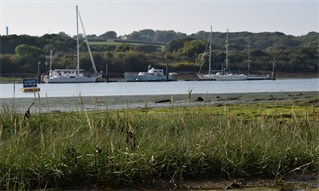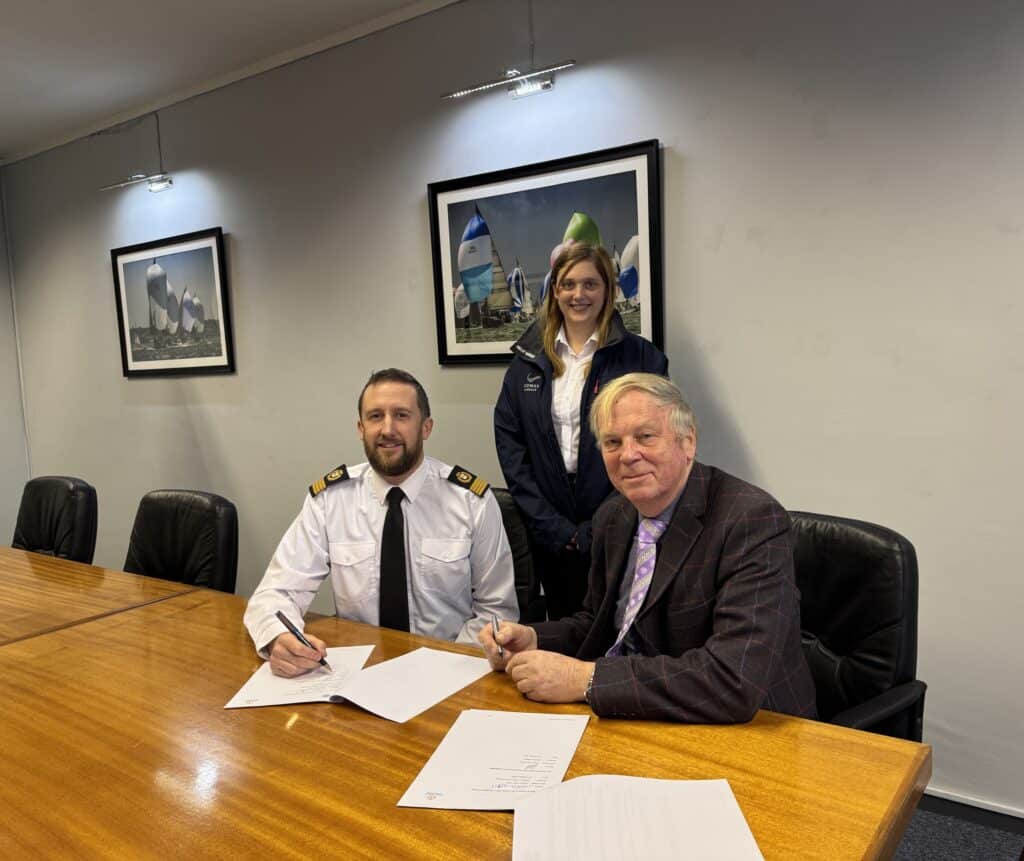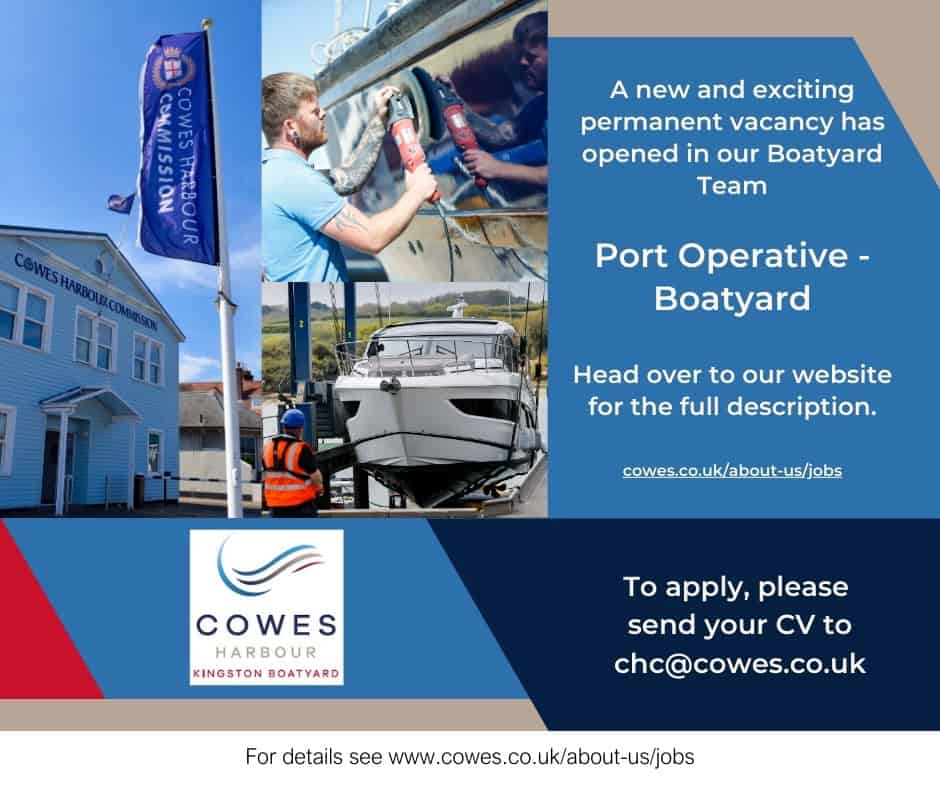
Water quality: CHC continues to work in partnership with the Isle of Wight Estuaries Project, Environment Agency (EA) and Southern Water to investigate and address water quality issues in the Medina estuary. After concerns were raised by Cowes Harbour Commission’s Advisory Committee (CHCAC), CHC has discussed the issues with the responsible organisations and is working to improve baseline knowledge about the water quality in the estuary.
Ben Willows, Chairman of the Advisory Committee, said: “In response to stakeholder concerns over the quality of river water, the CHCAC has worked with CHC and the Estuaries Officer in order to meet with Southern Water and the EA to better understand the water quality issues that Cowes is facing.”
The Environment Agency is the regulator and responsible for issuing discharge consents that allow a certain amount of wastewater into the estuary. This ensures that the wastewater system is not overloaded in times of heavy rain. There are a number of private discharge consents into the estuary as well as those monitored and controlled by Southern Water. Southern Water are responsible for maintaining as well as upgrading the system, and ensuring that the service delivered is ‘fit-for-purpose’ and meets regulatory requirements.
A key role for stakeholders will be to report any incidents of pollution through the Environment Agency’s incident hotline number 0800 80 70 60, which is open 24/7. This will ensure that incidents are recorded systematically and any problem areas can then be identified.
“It is really important,” Ben continued, “that anyone who witnesses a water quality issue in the river reports it to the EA, via the hotline, as soon as possible so that it is recorded and investigated by the EA. This will be a big help in creating a picture for the EA as to where and when issues arise.”
The Harbour Commission is also working with The Green Blue, a joint RYA and British Marine Federation (BMF) initiative, which is helping to raise awareness of environmental issues amongst recreational boaters and providing best practice guidance and information about locally available facilities.
We can all do our bit by not disposing of any garbage overboard that is illegal and using the onshore waste facilities, toilets or pump-out facilities. To find out more, please see the CHC website.
Speed and wash: CHC has also been working with the Estuaries Project to produce additional signage to remind river users about speed and wash in the sensitive areas of the estuary. Ben added: “The Advisory Committee is very pleased to see there are new signs to help control speed and wash going up in the Folly area.”
First and foremost however, CHC’s remit is to provide education on speeding and control of wash for all users of Cowes Harbour and the River Medina, but the Commission will prosecute for serious speeding offences or repeat offences if absolutely necessary and indeed, one prosecution for speeding and related infringements of Cowes Harbour General Directions is currently underway.
All mariners should proceed at a safe speed and not produce wake or wash that could cause a nuisance to other river users. The harbour is not only used by ships and yachts, but also by tenders and dinghies, many of which have a low freeboard and could easily be swamped.
The marinas and pontoons, which line the fairway, accommodate a wide range of vessels which are susceptible to damage from excessive wash and wake; so please be considerate, 6 knots through the water is a limit and not a target! Remember to look behind you and check your wash, a motor boat or RIB may well produce more wash at 6 knots than it does on the plane so reduce your speed even further.



